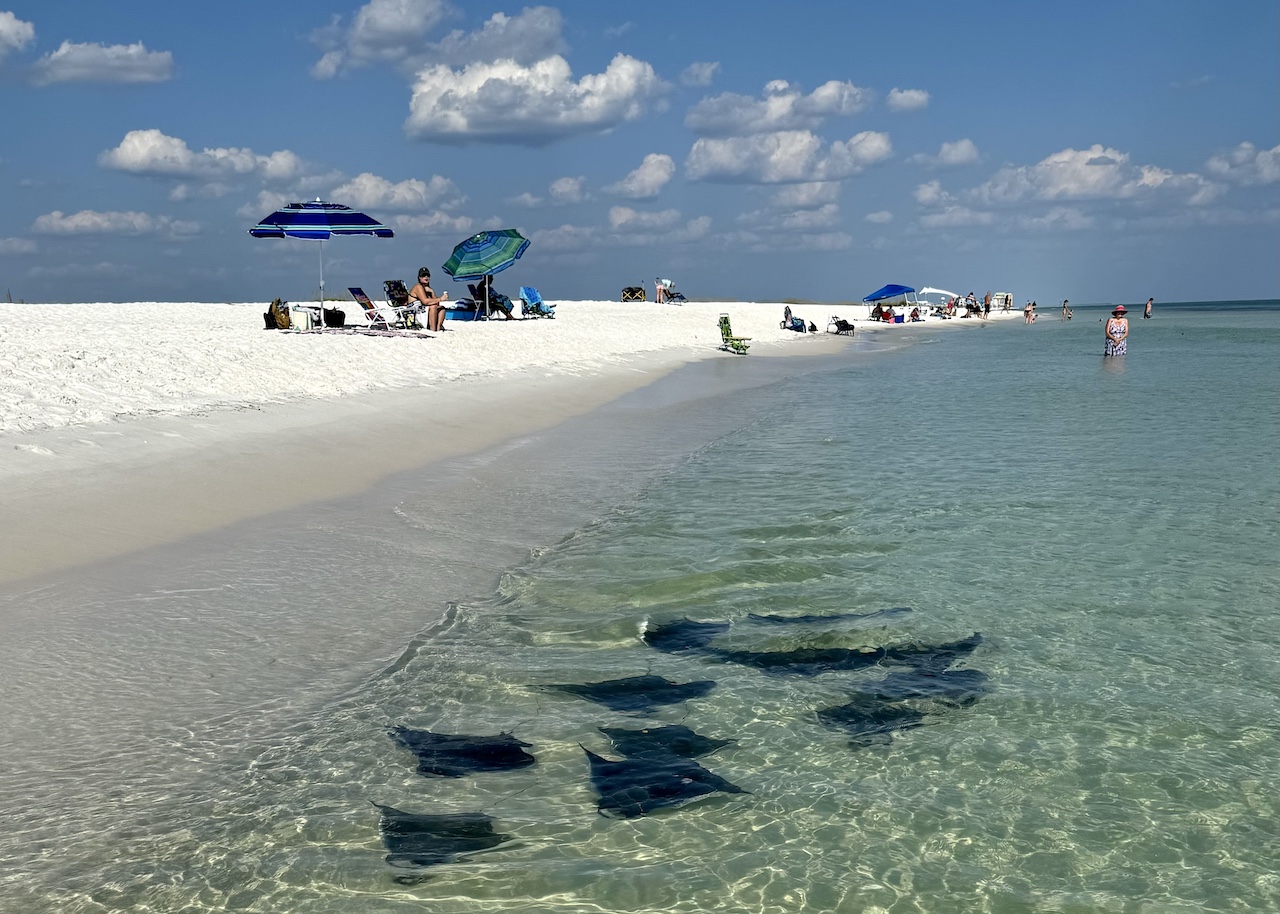
HICKSVILLE — When Pope Francis called something a crime, it made headlines — like in 2019 when he likened abortion to hiring a “hitman.”
Three years later, the Holy Father said in a TV interview that, “Throwing away plastic into the sea is criminal.”
“It kills biodiversity,” he continued. “It kills the earth. It kills everything.”
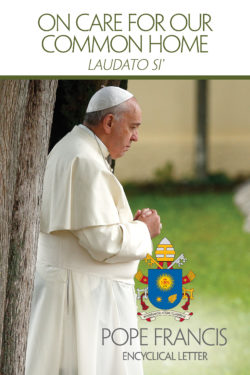
For Pope Francis, who died April 21, environmental protection and anti-abortion stances are linked in the broader context of caring for all of God’s creation.
As for the environment, the 10th anniversary of his 2015 encyclical, “Laudato Sí’: On Care for Our Common Home” will be marked globally during Laudato Sí’ Week, May 24-31.
Calling attention to ocean pollution is a part of the conversation.
“Particularly threatened are marine organisms which we tend to overlook, like some forms of plankton,” Pope Francis wrote. “They represent a significant element in the ocean food chain, and species used for our food ultimately depend on them.”
One such species is called Prochlorococcus.
RELATED: Through Writings Pope Francis Was Champion of Fraternity and Environmentalism
Although not a household name, the National Oceanic and Atmospheric Administration (NOAA) has confirmed that this bacterium produces 50-80% of the Earth’s oxygen.
It’s a case of “strength in numbers.” According to information from NOAA, this organism is the smallest on Earth.
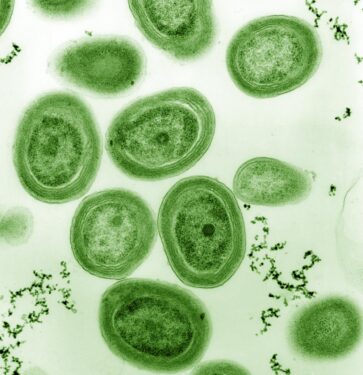
“There’s 10,000 of them per square inch of ocean water,” said Bill Lauto, a Long Island-based scientist. “That’s the true lungs of the Earth.”
Lauto, originally from Brooklyn, is a lifelong Catholic who has used his scientific zeal, and degree in “Shroud Studies” from a pontifical university in Rome, to promote the authenticity of the Shroud of Turin. He serves on the Shroud Apostolate Group English (SAGE) for North America.
RELATED: Researchers’ Study Contends Shroud of Turin Actually Dates to the Time of Jesus
However, Lauto’s primary field is environmental science, and he works as a consultant from his home in Hicksville. He explained that Prochlorococcus was not taught to Baby Boomers like himself in school.
Previously, they learned that land-based plants, like trees, got credit for the Earth’s photosynthetic production of oxygen, which humans need to survive.
That changed after Prochlorococcus was discovered in 1988 by scientists at the Massachusetts Institute of Technology. Now, it’s credited for creating more oxygen than “all of the tropical rainforests on land combined,” according to NOAA.
But Lauto warned that these small but vital organisms face an equally tiny enemy.
“The microscopic plastic pollution in our ocean is killing them,” he said.
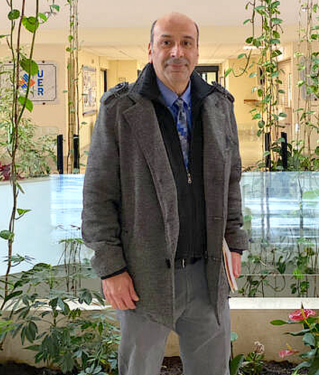
Lauto is referring to “microplastics” — a term developed in the early 2000s to describe minute bits of plastics that enter the ocean by various means. These particles break down in size, but they never actually go away because, being petroleum-based, they’re not water-soluble, Lauto said.
He pointed to a joint 2024 study by Rutgers and Columbia Universities that described how microplastics are released from innocuous sources like prescription bottles.
“Every time you open that safety cap, the plastic rubs against plastic, and microscopic plastic particles break off,” Lauto said.
He also described how another petroleum-based product, polyester, is a different form of plastic that is pervasive in modern clothing.
“Studies show, with every wash we do, 750,000 microscopic plastic particles go out with the wastewater from the washing machine,” Lauto said. “That gets into our environment.”
Consequently, microplastics are found in food, water, the human circulatory system, and the oceans. Scientists say more research is needed to determine the potential harm of these particles to people, but they do know that chemicals that leach out of plastic can harm Prochlorococcus growth.
RELATED: Following a Franciscan Example, Advocates Work to Reinvigorate NY Oysters
This can block photosynthesis and cut worldwide oxygen production, Lauto said. It’s a growing concern, he added, as microplastics are accumulating in the oceans.
“We got plastic pollution in the mid north Pacific Ocean the size of Rhode Island, floating about three feet under the surface,” Lauto said.
This is the so-called “Great Pacific Garbage Patch” — a mass of plastic pieces ranging in sizes from old fishing nets to the tiniest of microplastics. It is the largest of five such patches located throughout the world and formed by rotating ocean currents.
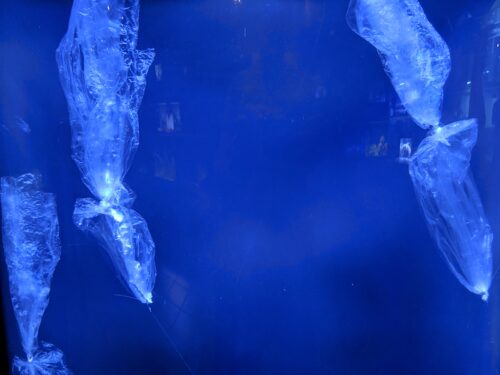
According to NOAA, it’s extremely hard to purge microplastics once they’re dragged into the oceans’ swirling rotations. Thus, NOAA officials say long-term prevention is key to mitigating the problem. That means keeping plastic out of the waters.
To that end, they’re focusing on prevention-and-removal efforts along coastal areas where the trash is easier to grab. Lauto said he appreciates how in “Laudato sí’ ” Pope Francis calls upon individuals to take responsibility for environmental protection.
As examples, Lauto described how his family swapped plastic kitchen utensils for new ones made of wood like bamboo. Metal water containers can replace plastic water bottles, he said.
These are practical things that, over time, can make meaningful differences without churning hysteria, Lauto noted.
“Taking information and making a prediction about something is irresponsible,” he said. “I don’t care for people who scare little kids and scream that we’re doomed.
“We just have to do the smart things.”
